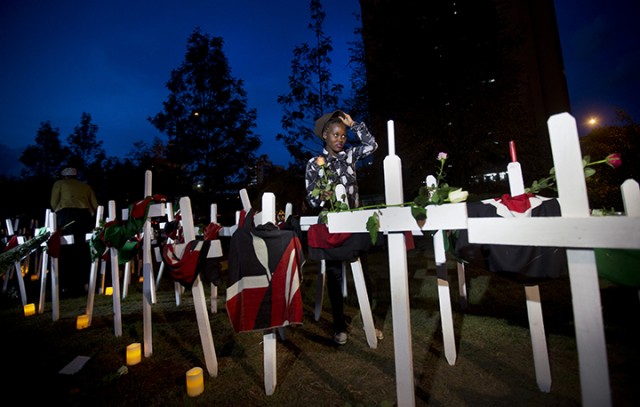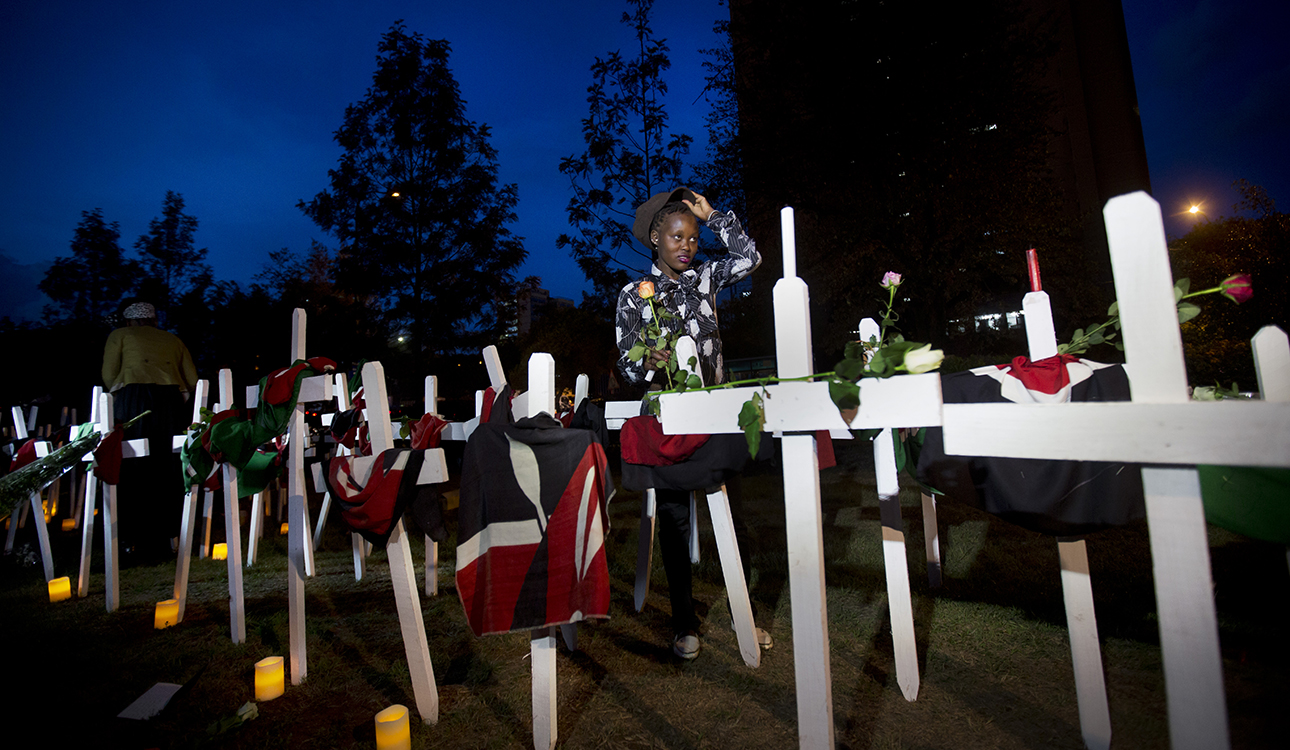
Associated Press
By Tom Odula and Christopher Torchia
Associated Press
NAIROBI, Kenya — Public anger spilled into the streets of the Kenyan capital Tuesday, a fury stirred by the seven-hour delay between the time authorities learned of a deadly attack by gunmen on a college and when police commandoes finally arrived at the scene.
Authorities were informed of the assault just before dawn Thursday at Garissa University College in northeastern Kenya, where four militants killed 148 people before being slain by police in the early evening.
Questions have arisen that the delayed arrival of the police could have contributed to the high death toll as the country confronts the threat from the Islamic extremists from the Somalia-based al-Shabab militant group.
During a demonstration by about 250 students, they passed a truck carrying security forces with red berets and rifles and shouted at the troops: “Where were you?”
The troops did not respond.
The students also banged on the sides of a police vehicle and converged briefly outside Kenyan police headquarters, again demanding: “Where were you?”
The Kenyan military, which has a barracks in the town of Garissa, was the first to respond with some help from local police, the government has said. The police department’s paramilitary tactical unit, known as the Recce Squad, was briefed about the attack but put on standby because the military said it could handle the attack, said a senior police officer who was involved in Thursday’s actions.
It was only after hours had gone by and the military had suffered casualties that a decision was made to send in the Recce unit, which is trained in close-quarters combat and hostage rescues and is based in Nairobi, he said. The official spoke only on condition of anonymity because he is not authorized to talk to the press.
Military spokesman Col. David Obonyo did not immediately answer phone calls seeking comment.
With police helicopters not operational because of mechanical problems, the Recce Squad flew the 200 miles to Garissa on two small planes that could not carry the whole unit, forcing other members to travel by road. Once the tactical team went into the besieged campus at 5 p.m. — almost 12 hours after the attack began — its members killed the gunmen and secured the site within a half-hour. By then, 148 people were dead.






